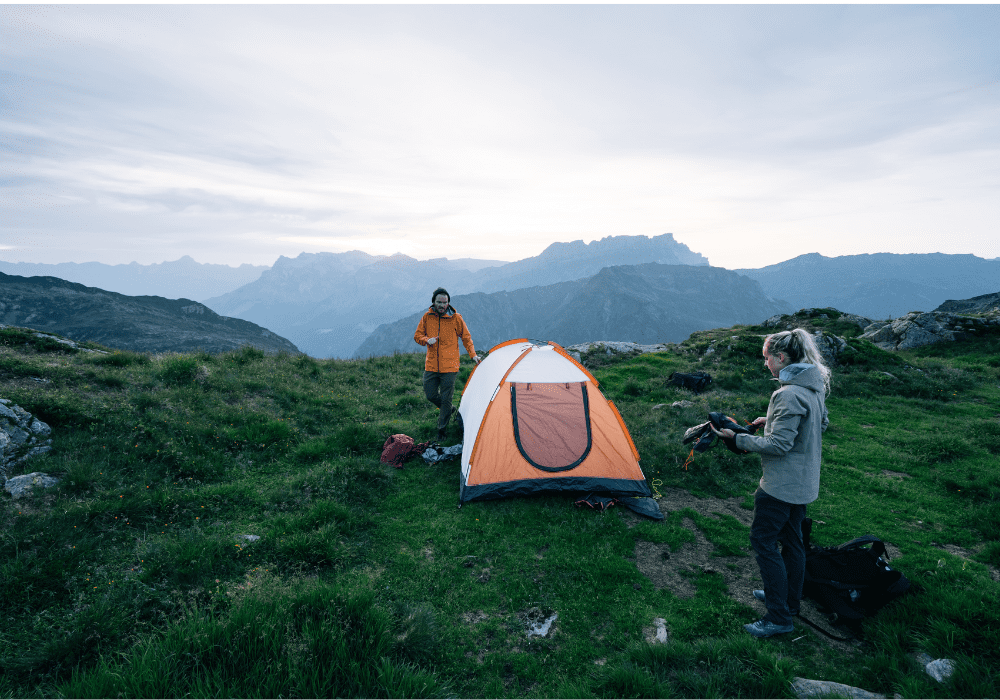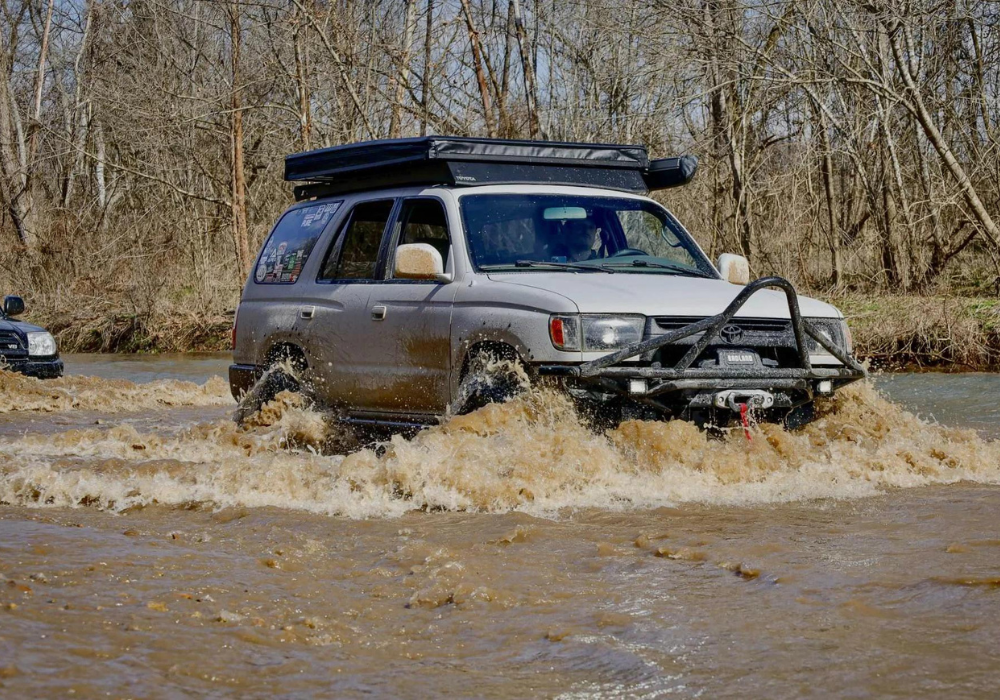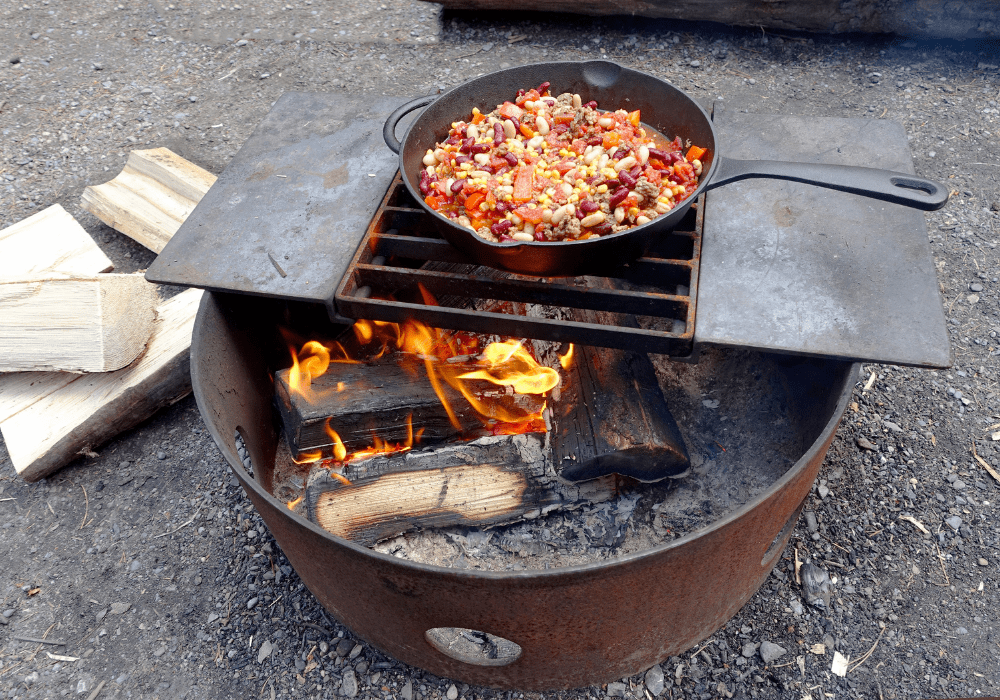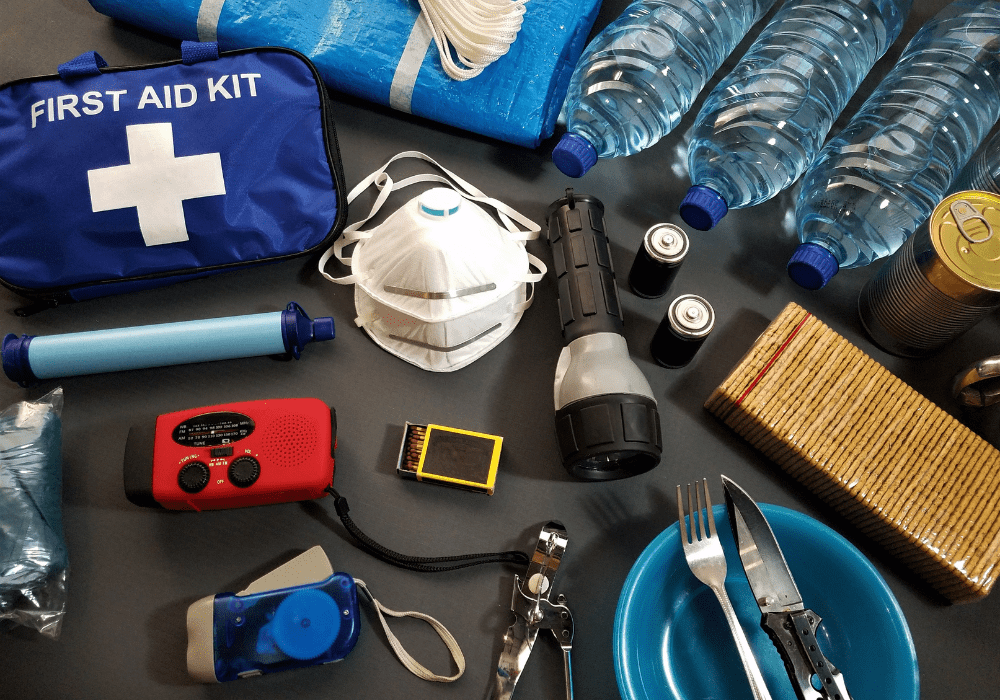
Camping Checklist: Essential Camp Gear to Bring
As a boy scout back in my youth, our motto was “always be prepared.” This motto applied to many facets of my life growing up, but I first used it when we were taught how to go camping as boy scouts.
Since then, camping has always been an enjoyable pastime that I’ve always loved doing. There’s just something about the whole process from preparation to actually camping and then coming back home that always appealed to me. Heck, I even enjoy the road trip from my house to the camping site.
Table of Contents
Never Go Camping Without These Essentials
All those years of camping have taught me exactly what to bring every time I go on another adventure. Needless to say, what I thought of as “essential” has changed through the years so I’m writing this article so you too can be prepared for your own camping trip.
Here’s a quick checklist of what you’ll need:
- Tent
- Sleeping bag
- Sleeping pad
- Camping pillow
- Camp chair
- Camping table
- Lantern
- Multi-tool
- Duct tape
- First aid kit
- Camping stove and fuel
- Firestarter
- Camping pots
- Eating utensils
- Cooler
- Hammock
- Camping clothes
- Sun protection
- Toiletry
- Bin bags
1. Tent
You can’t go camping without shelter. While you can go old school and make your shelter from sticks, branches, and leaves, not all campsites allow that or you may not want to waste your valuable time building one.
Back in the day, tents were quite heavy and complicated to set up. Today you’ll find quite a variety of easy-to-set-up tents that are not only lighter but also provide better weather protection.
2. Sleeping Bag
Of course, you wouldn’t want to sleep directly on your tent floor, no matter how soft the ground is. Ground temperatures can shift dramatically and cause hypothermia to those unprepared.
Instead, get yourself a good durable sleeping bag that’s warm and comfortable enough for the place you plan to camp. Never underestimate the value of a good night’s sleep, especially in the wilds.
3. Sleeping Pad
Speaking of sleeping and getting a good night’s sleep, if you’re camping in rugged mountain terrain, your sleeping bag may not be enough to keep you warm at night. Rather than rely solely on your sleeping bag, bring along a lightweight sleeping mat. Not only does it provide more cushioning against the mountain terrain, but it also adds a layer of warmth as you call it a day.
4. Camping Pillow
I don’t know about you, but I’m one of those people who require more than one pillow to get some sleep. Rather than bring cumbersome normal pillows, get you some inflatable camping pillows instead. Not only will they be easier to carry, but they’ll also be a lot lighter.
5. Camp Chair
If you’re camping with someone with back problems, or you just want to stay comfortable while fishing or preparing food, you’ll want to bring along a camping chair. Camping chairs don’t have to be fancy but they do have to be foldable, lightweight, yet durable enough to support the weight of whoever is sitting on them.
6. Camping Table
Depending on the campsite you chose, you may need to bring your camping table, especially if you plan to prepare and cook your meals. There are lots of lightweight folding camping tables available on the market. Just make sure you buy one that can stand as much weight as possible.
7. Lantern
A good light source like a lantern or headlight will save you from clumsily stumbling around at night. Not only will it help you see in the dark, but you can also use it to attract other people’s or the park ranger’s attention should you find yourself in an emergency.
8. Tools
By far one of the most “always be prepared” things you can carry is a multi-tool. That said, make sure the one you’re bringing includes tools that you’ll need at camp. You’ll find that most camping problems can be solved by either a multi-tool or an E-tool.
9. Duct Tape
For those camping problems that your tools can’t fix, duct tape should do the trick. Duct tape is every handy person’s best friend and can be used to get you out of some surprising situations. From torn tents and sleeping bags to improvised arm splints and even building your own boat, there’s a reason for the saying “if you can’t fix it with duct tape, you’re not using enough duct tape.”
10. First Aid Kit
Another “always be prepared” essential is a first aid kit. As a boy scout, it was one of the first things I was taught to never leave home without – and for good reason. Having (and knowing how to use) a first aid kit can reduce the risk of minor emergencies becoming major, trip-ending ones.
11. Cooler
Shorter camping trips, like in your local park, will let you get away with just bringing canned or precooked food. But if you plan to camp overnight and catch/cook your food, you’ll need something to store it and keep it fresh.
If you’re bringing food to cook, store it in a hard shell cooler. Softshell coolers are better for catch-and-cook situations.
I am so happy I finally went for it and got a YETI. I don’t know if you know this but – if you pre-cool your yeti, like I did on my last camping trip, you don’t have to go get new ice every night at the nearest convenience store. True story.
12. Camping Stove and Fuel
If you plan to cook while camping, it’s a no-brainer to bring a camping stove and fuel. While some campsites will have a place you can cook at, these facilities are few and far between plus you may have to wait in line to use them.
13. Firestarter
Back in the day, we were required to make fire using two sticks or by using the bow drill method. Nowadays, it’s far faster and more convenient to just use a firestarter. This can be in the form of a lighter, some matches, or even a flint and steel.
14. Camping Cookware
Today’s campers are fortunate to have a variety of camping cookware options to choose from. It shouldn’t be hard to find sets of camping-specific frying pans, pots, and even kettles that all pack, like a Russian Matryoshka doll, to become one easy-to-carry item.
15. Eating Utensils
If you’re camping alone, you can get away with eating using just your hands. Some multi-tools will also have a spoon, fork, and knife. However, if you’re camping with your family, you may want to bring eating utensils instead.
16. Camping Clothes
What camping clothes you bring will depend on your campsite’s location. Several warmer, figure-hugging layers for colder places and breathable sweat-wicking clothes for hotter conditions. You should also bring along a set of clothes specifically for sleeping so you don’t have to sleep in the same wet dirty clothes you wore all day.
17. Toiletries and Personal Items
No matter what campsite you go to, always bring your toiletries. Tissue paper, soap, hand sanitizer, feminine products, etc. All of these are essential to keep yourself hygienic while camping. Do nature a favor, though, and choose products that are biodegradable and nature-friendly so you can make as minimal an impact on nature as possible.
18. Bin Bags
Speaking of minimal impact, the last essential on this list will help ensure you keep the campsite free from your garbage. Do your best to clean up before you leave for home and separate your trash into different bags. A little effort on our part goes a long way to protecting and preserving our precious campsites for future generations to enjoy.





Pingback: Backpacking on a budget: Is it Possible? 9 Reasons The Answer is, Yes! - AdventureHacks